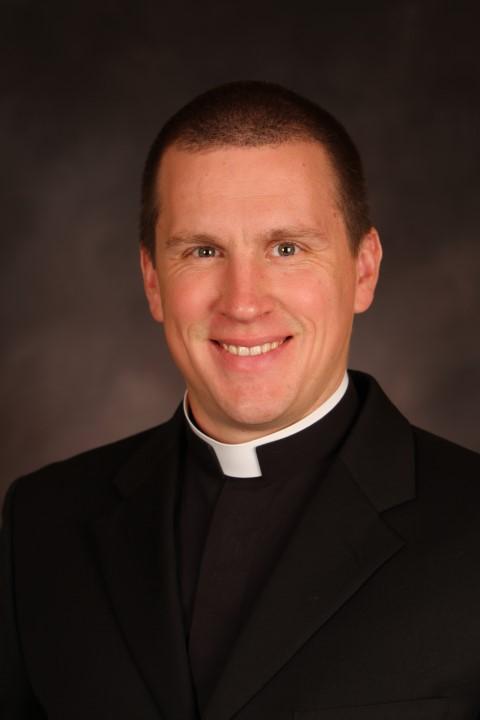This reflection originally appeared on To Go Forth, a blog from the USCCB’s Department of Justice, Peace & Human Development.
 This past August, seminarians from the third year theology class at the Saint Paul Seminary in Saint Paul, Minnesota gathered for a week-long class on Catholic ministry in rural settings. The course was led by Mr. Jim Ennis, national director of Catholic Rural Life, and Dr. Christopher Thompson, academic dean and professor of Moral Theology at the Saint Paul Seminary. PresentationFs on Catholic Rural Life included reflections from clergy engaged in rural ministry, discussion of Pope’s latest encyclical on the care of creation, and tours of local farms owned and operated by Catholic parishioners.
This past August, seminarians from the third year theology class at the Saint Paul Seminary in Saint Paul, Minnesota gathered for a week-long class on Catholic ministry in rural settings. The course was led by Mr. Jim Ennis, national director of Catholic Rural Life, and Dr. Christopher Thompson, academic dean and professor of Moral Theology at the Saint Paul Seminary. PresentationFs on Catholic Rural Life included reflections from clergy engaged in rural ministry, discussion of Pope’s latest encyclical on the care of creation, and tours of local farms owned and operated by Catholic parishioners.
The week afforded us a wonderful opportunity to reflect upon a much-overlooked aspect of contemporary Catholic life: the unique blessings and challenges of rural ministry, along with the powerful opportunities it presents for evangelization and cultural renewal.
These can be easy to forget in an age in which the population is ever more concentrated in urban communities. Often this is at the expense of depleted rural communities, which, in the face of smaller family sizes and economic pressures, have survived in many places only through a more and more industrialized farming practice. This is not to say that there are not yet many vibrant small communities to be found across our country. There surely are. But it can be easy for the Church today to focus its attention on “where the people are” as the primary place for the gospel to “confront the culture.” In doing so, we can neglect and underestimate the possibilities of “smaller places.”
There is a power in growing things, as there is a power in places that daily confront us with God’s handiwork in these growing things. Such places can teach us basic lessons and values that can easily get overshadowed in cityscapes, dominated as these are by what Pope Francis calls the “technocratic paradigm” and the illusion that human industry is the source of all things. The country, by contrast, confronts us with life, unplanned and unmanaged abundance, a force and a power in things that precedes all human invention. It connects us to the Creator, and helps people to find their place in the great symphony of created things.
In short, field and air, plant and animal have a knack for opening people up to God, far better than steel and concrete.
One of the matters discussed during the course of our week was the risk that even this place of opening might be effectively closed-up through the industrialization of farming and the simultaneous squeezing out of once vibrant communities. But this risk carries with it an opportunity to become a primary place for the re-assertion of basic human values, values that our society is in grave danger of forgetting.
If symphonies and galleries forget beauty, universities truth, and governments goodness, perhaps it is here, through the pulpit, altar, celebration, and discipleship of the rural parish, that we can witness the re-birth of culture (always necessary) through the re-integration of worship, community, and the tilling of the land. It is no coincidence that culture and cultivation share the same word as their root (cult is Latin for worship).
For this seminarian, the biggest take-away from our week of considering the realities of rural Catholic life was excitement at the possibilities latent in such a ministry. A rural ministry demands great imagination and investment, but at the same time promises great yield.
As one of our presenters suggested to us in class, perhaps the best place to plant the seeds of the new evangelization is the place where seeds are planted in the dirt. As Our Lord put it: the fields are ripe for the harvest.
Bryce Evans is a third year seminarian at The Saint Paul Seminary School of Divinity, studying for the Archdiocese of Saint Paul-Minneapolis.
















